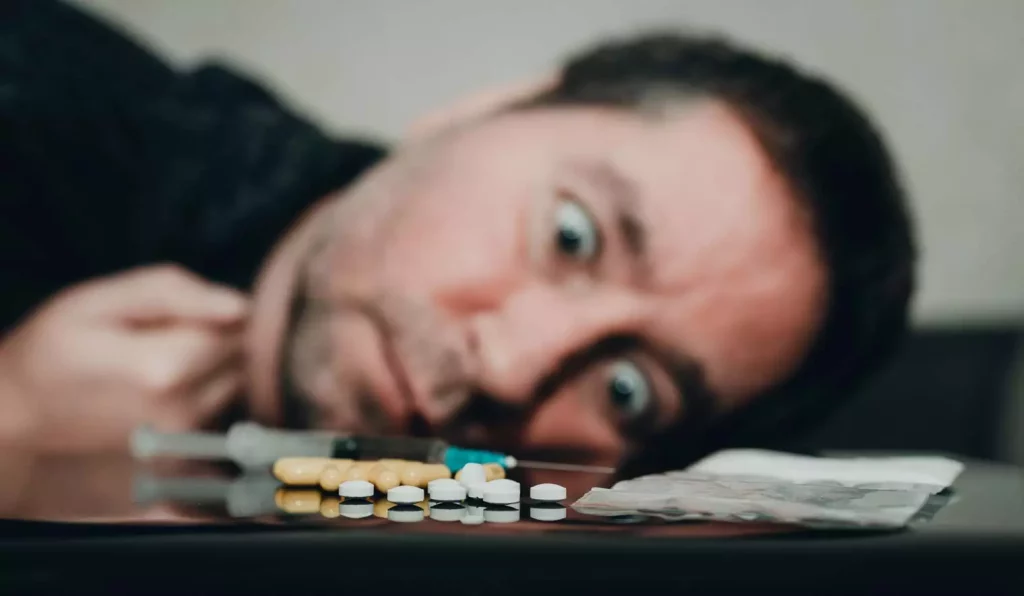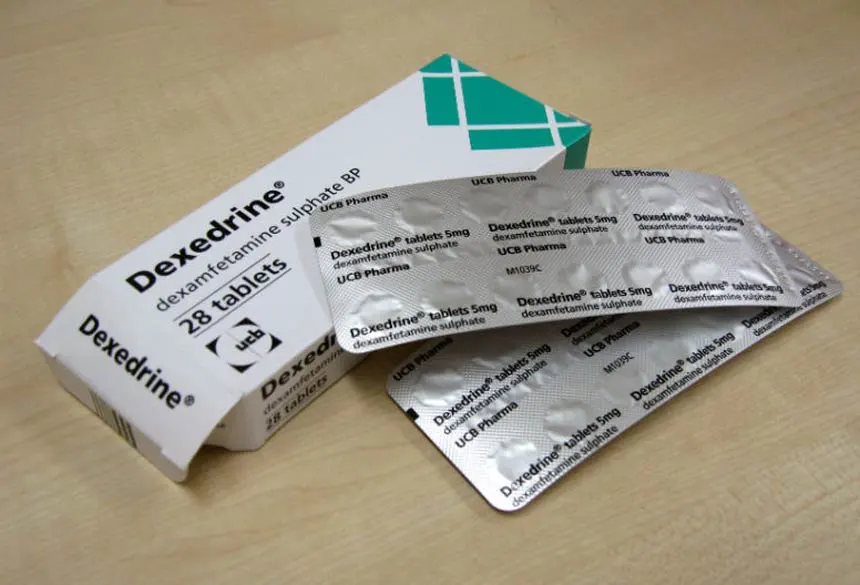What Is Dexedrine?
Table of Contents
Dexedrine, or dextroamphetamine, is a type of amphetamine and stimulant medication that is utilized as a form of treatment for certain mental health conditions such as Attention Deficit/Hyperactivity Disorder (ADHD).
Dexedrine is classified as a Schedule II drug under the Drug Enforcement Administration Which means that this drug has a high potential for substance abuse with limited medical value. This means misuse and even Dexedrine dependence are also concerns when using this drug.
To best avoid Dexedrine abuse and Dexedrine addiction, it is important for an individual to follow and use this medication as it was prescribed. Although individuals can lower the risk of addiction and abuse, they are still likely to become dependent upon Dexedrine.
If you feel you may be becoming dependent on Dexedrine, please keep reading to learn ways to lessen and eliminate this in your life!
Dependence vs Addiction
Many people may view dependence and addiction as the same things and although they are related, they are not the same. Dependence does not mean an individual is addicted to a substance, or in this case, Dexedrine, it means they rely upon it.
Addiction is classified as a relapsing disorder in which an individual actively seeks drugs despite negative consequences. An individual who is dependent upon drugs is relying upon a substance for proper bodily functions or in other words, has physical dependence on a substance.
An individual who is addicted to drugs is also dependent upon them; However, individuals who are dependent upon drugs are not necessarily addicted.
Mental Health and Drug Abuse
There are many individuals who struggle with mental health disorders. Mental health disorders go by many names such as mental illness, mental conditions or mental disorders. These are all different names for the same condition.
A mental health disorder is a type of psychiatric condition in which an individual’s thoughts, feelings, mood, and perception are altered. With that being said, these individuals typically experience a lowered quality of daily experience.
These disorders are often life-long disorders in which individuals must learn to cope or manage alongside the many difficulties of life. These mental health disorders include:
- Mood disorders
- Depression
- Bipolar disorder
- Attention Deficit/Hyperactivity Disorder (ADHD)
- Narcolepsy
- Anxiety disorders
Many of these disorders can influence an individual severely. As these individuals struggle through their daily experience, it is important that they properly process their experience through coping mechanisms or management techniques.
Unfortunately, many individuals do not receive proper treatment and have poor or harmful ways to deal with their situations. This does include self-medicating as a way to manage their experience.
Self-medicating is when an individual determines a dosage of a substance on their own without medical advice. There are many risks and dangers with self-medicating such as addiction and abuse.
To best avoid substance abuse, it is best for an individual to work with a medical professional to determine a proper diagnosis and treatment for a condition.
Attention Deficit/Hyperactivity Disorder or ADHD
Attention Deficit/Hyperactivity disorder (ADHD) is a type of mental health disorder that affects an individual’s focus, attention, and activity. Dexedrine is a medication prescribed to individuals with ADHD as a means to treat the effects of this condition.
Dexedrine works by promoting the levels of dopamine within an individual and allowing them to hold proper and consistent cognitive functions. Sadly, this medication does lead to dependence due to how it changes the natural processes within the body.
This drug is also used for individuals with narcolepsy however, there are other primary medications that are used first and so it is less likely for an individual to be dependent upon Dexedrine.
Dexedrine is one of the many ADHD treatment medications. Other ADHD drugs typically include prescription stimulants which work similarly to Dexedrine. The reason for the varying medications is to provide alternatives to individuals that certain medications do not work well for.
How Long Does Dexedrine Stay in Your System?
Dexedrine may stay in your system from one day to a few months. There are several factors that affect the long term effects of Dexedrine including your metabolism, body mass, age, how well you are hydrated, level of physical activity, and other health conditions.
One of the main factors that influence how long it stays in your system is how much Dexedrine is used and how often you use it. It takes the body longer to metabolize and remove Dexedrine from the body with high dosages and long-term use.
Dexedrine Side Effects
Most medications come with unwanted side effects alongside their intended effect; however, every person’s body is different and so one person’s body will react differently to medication than another will.
The side effects of using Dexedrine include:
- Headache
- Dry mouth
- Unpleasant taste
- Constipation
- Weight loss
- Sexual dysfunction
Dexedrine Withdrawal Symptoms
Withdrawal symptoms are the biggest factor which makes recovery so difficult. As an individual takes on stopping use, these symptoms are both overwhelmingly uncomfortable and relapse provoking.
In many cases, they can also be life-threatening which makes it important for an individual to receive proper treatment for stopping use. The Dexedrine withdrawal symptoms include:
- Irritability
- Anxiety
- Fatigue
- Agitation
- Strange dreams
- Increased appetite
- Disorientation
Keep in mind that with stopping Dexedrine use the symptoms of ADHD or the reason Dexedrine was prescribed may arise again after stopping use. It is important to receive treatment for these issues to properly stop Dexedrine use.
Stopping Dexedrine does not mean that these issues have been resolved as this medication is used to treat this condition. Individuals must learn how to properly manage and cope with their experiences.
Behavioral therapy and psychotherapy are both methods of supporting individuals in properly understanding their experience and learning how to manage it without medication.
Is It Possible To Overdose On Dexedrine?
Yes, it is possible to overdose on Dexedrine. One of the health risks of Dexedrine is taking in too much and leading an individual to overdose. The more you use this drug, the higher the levels of the drug remaining in the body will increase.
If you or someone you know has taken too much Dexedrine, you should call 911 for emergency treatment.
Thorazine is an antipsychotic medication that can counteract some of the effects of Dexedrine. However, due to the long-acting form of Dexedrine, this can be difficult and the person experiencing the overdose should be monitored closely by healthcare professionals.
Symptoms of Dexedrine overdose include:
- Restlessness
- Uncontrollable shaking of a part of the body
- Dark red or brown urine
- Muscle weakness
- Tiredness
- Fast breathing
- Fever
- Confusion
- Aggressive behavior
- Seeing things or hearing voices that are not real
- Panic
- Depression
- Irregular heartbeat
- Dizziness
- Fainting
- Blurred vision
- Upset stomach
- Vomiting
- Diarrhea
- Stomach cramps
- Seizures
- Coma or loss of consciousness for a period of time
Addiction Treatment Methods for Stimulants
Thankfully, there are many treatment options for individuals struggling with substance addiction. In many cases of Dexedrine dependence, an individual is addicted to the substance. It can be very difficult to properly stop use without receiving proper addiction treatment.
Although there is no medication to support individuals through stimulant addiction, there are many other options to support individuals including individual counseling, group therapy, and behavioral therapy.
Individuals who abuse Dexedrine can benefit greatly from addiction treatment. Treatment centers have many resources available to support individuals through the recovery journey. An individual can work with a treatment provider to create a treatment plan that works for them.
The addiction treatment process typically follows after drug detoxification and fits the needs of an individual. It is important for treatment to meet the needs of an individual otherwise substance abuse is likely to arise again.
This is one of the reasons for the varying resources available at treatment centers to allow for an individual to receive the proper care they need.
Medically Supervised Detox
A medical detox is a form of inpatient treatment in which an individual is required to live on-site at a treatment center to receive treatment. The reason for this is to provide proper support for individuals experiencing severe withdrawals.
This form of drug detoxification is great for individuals struggling with severe withdrawals and dependence upon a drug however, it is unlikely that someone struggling with Dexedrine dependence requires as intense of detoxification. It is likely a partial hospitalization program will be recommended with professional treatment advice.
Partial Hospitalization Programs or PHPs
A partial hospitalization program (PHP) is a form of intensive outpatient treatment in which an individual receives treatment during the day and can return home after treatment. This treatment is available for individuals experiencing mild to moderate withdrawals.
The name for this type of detoxification is called ambulatory detoxification. Ambulatory detoxification supports individuals who are at low risk of relapse. This allows them flexibility in their life while still receiving treatment.
Inpatient Treatment
Inpatient treatment is a form of treatment that requires individuals to live on-site at a treatment facility to receive treatment. This treatment style allows individuals to leave their familiar environment and live at a treatment center.
This can be beneficial and comfort many individuals, as familiar environments can be relapse-provoking and lead to causing some of the most difficult hardships for individuals. This treatment focuses on building foundational steps towards maintaining recovery through behavioral therapy, group therapy, and other forms of beneficial counseling for individuals.
Outpatient Treatment Services
Outpatient treatment is a form of treatment in which individuals are able to receive treatment during the day and return home after receiving treatment. This allows individuals to continue with responsibilities such as work or school.
Along with the flexibility in time, this option also provides individuals with a more financially supportive option. This option is less expensive when compared to inpatient treatment.
Treatment for Drug Dependence: Found Here
Dexedrine dependence can be difficult to manage, especially while dealing with the many other aspects of life. Here at Find Addiction Rehabs, we can help make finding treatment easier.
Whether finding a treatment center in your location or connecting you with recovery tools and resources, our hotline is available 24/7 to make sure you can get the help you need, anytime you need it.
Individuals struggling with Dexedrine dependence as well as mental health disorders will have difficulties on a daily basis but this can be avoided. Call us today and we can help you get the help you need!
Rachael Goldstein has been a freelance writer for more than 10 years, having written for Find Addiction Rehabs for the past two years. She specializes in writing about the law, mental health, psychology, and addiction. She is the owner and author of the website www.addicted-to-sobriety.com. Rachael is also a licensed attorney in the state of Pennsylvania.






